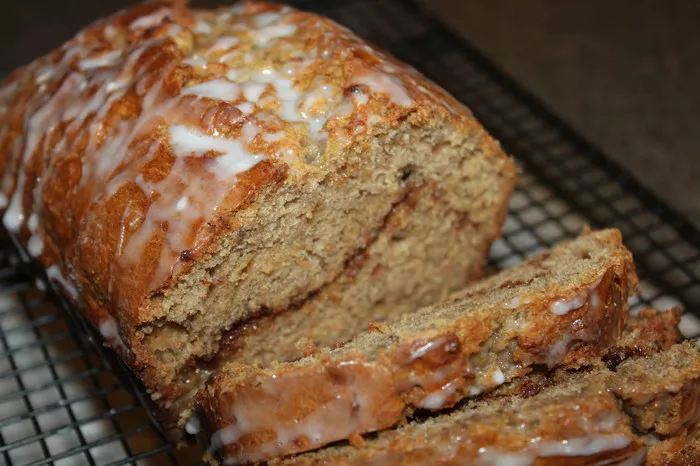In the dynamic landscape of the food industry, franchise opportunities offer a pathway to entrepreneurial success. Panera Bread, a household name renowned for its artisanal bread and wholesome menu offerings, stands as a beacon for aspiring franchisees. However, venturing into the realm of Panera Bread franchising necessitates a deep understanding of the brand’s ethos, operational intricacies, and franchise requirements. This comprehensive guide aims to dissect the Panera Bread franchise model, shedding light on the prerequisites, investment considerations, and steps to embark on a journey towards owning a slice of the Panera pie.
Understanding the Panera Bread Brand
Before delving into the specifics of Panera Bread franchise requirements, it is imperative to grasp the essence of the Panera Bread brand. Founded in 1987 as the St. Louis Bread Company, the brand underwent a transformation and emerged as Panera Bread in 1997. With a commitment to providing fresh, quality ingredients and fostering a warm, inviting ambiance, Panera Bread has carved a niche in the competitive fast-casual dining segment.
Central to Panera Bread’s appeal is its diverse menu featuring soups, salads, sandwiches, and freshly baked bread, catering to a wide spectrum of tastes and dietary preferences. Moreover, the brand’s emphasis on community engagement and corporate social responsibility adds depth to its identity, resonating with socially conscious consumers.
Franchise Prerequisites for Panera Bread
While the prospect of owning a Panera Bread franchise is enticing, prospective franchisees must meet certain criteria to be considered eligible. These prerequisites encompass financial capabilities, operational acumen, and alignment with the brand’s values.
1. Financial Requirements:
As with any franchise endeavor, financial preparedness is paramount. Panera Bread franchisees are expected to demonstrate substantial liquidity and net worth to support the initial investment and ongoing operational expenses. While precise figures may vary depending on factors such as location and market conditions, prospective franchisees should anticipate an initial investment ranging from $1.6 million to $3.1 million. This investment encompasses expenses such as franchise fees, equipment procurement, leasehold improvements, and working capital.
In addition to the initial investment, franchisees must possess the financial wherewithal to navigate the early stages of business establishment, where profitability may be limited. Adequate reserves to sustain operations during this period are essential for long-term viability.
2. Operational Expertise:
Beyond financial considerations, Panera Bread franchisees must possess a blend of managerial prowess and customer-centric focus. While prior experience in the foodservice industry is advantageous, it is not necessarily a prerequisite. However, a track record of leadership, team management, and customer service excellence enhances the likelihood of success in the franchising journey.
Panera Bread places a premium on operational excellence, emphasizing efficient kitchen management, inventory control, and adherence to brand standards. Franchisees should be prepared to embrace these operational imperatives and foster a culture of continuous improvement within their establishments.
3. Cultural Fit:
Integral to the franchisee selection process is alignment with Panera Bread’s values and corporate culture. The brand places a strong emphasis on community engagement, sustainability, and responsible sourcing practices. Prospective franchisees who share these values and demonstrate a genuine commitment to fostering positive social impact are more likely to garner favor during the evaluation process.
Navigating the Franchise Application Process
Armed with a clear understanding of the franchise prerequisites, prospective franchisees can embark on the application process with confidence. The journey towards owning a Panera Bread franchise unfolds in several distinct stages, each characterized by rigorous evaluation and due diligence.
Initial Inquiry: The first step entails expressing interest in franchising with Panera Bread by submitting an initial inquiry through the brand’s official website or franchise portal. This inquiry serves as the foundation for initiating communication with the franchising team and obtaining pertinent information regarding the franchise opportunity.
Preliminary Assessment: Following the submission of an initial inquiry, prospective franchisees undergo a preliminary assessment to evaluate their alignment with Panera Bread’s franchise criteria. This assessment may entail a review of the candidate’s financial credentials, operational experience, and cultural fit with the brand.
Franchise Disclosure Document (FDD) Review: Upon successful completion of the preliminary assessment, candidates are granted access to Panera Bread’s Franchise Disclosure Document (FDD). The FDD serves as a comprehensive repository of information pertaining to the franchise opportunity, including franchise fees, financial performance representations, and contractual obligations.
Discovery Day: A pivotal milestone in the franchise evaluation process is the Discovery Day, where prospective franchisees have the opportunity to interact with key stakeholders within the Panera Bread organization. This immersive experience provides insights into the brand’s ethos, operational dynamics, and support infrastructure, allowing candidates to make informed decisions regarding their franchising aspirations.
Franchise Agreement Execution: Upon satisfactory completion of the evaluation process, selected candidates proceed to the final stage of franchise agreement execution. This entails formalizing the contractual relationship between the franchisee and Panera Bread, delineating rights, obligations, and operating parameters.
Training and Support
Central to Panera Bread’s franchising ethos is the provision of robust training and ongoing support to franchisees. Upon signing the franchise agreement, franchisees undergo comprehensive training programs designed to impart essential operational skills and familiarize them with Panera Bread’s systems and protocols. From culinary techniques to managerial best practices, the training curriculum equips franchisees with the tools needed to thrive in their entrepreneurial endeavors.
In addition to initial training, Panera Bread offers continuous support to franchisees through a dedicated network of field consultants, operational experts, and marketing professionals. This support infrastructure serves as a lifeline for franchisees, providing guidance on day-to-day operations, marketing initiatives, and strategic decision-making.
Conclusion
In conclusion, the journey towards owning a Panera Bread franchise represents a formidable yet rewarding endeavor for aspiring entrepreneurs. By fulfilling the brand’s franchise requirements, harnessing operational expertise, and embracing Panera Bread’s values, franchisees can unlock the recipe for success in the competitive fast-casual dining landscape. With a commitment to quality, community, and innovation, Panera Bread continues to pave the way for franchisees to embark on a fulfilling entrepreneurial journey, one loaf at a time.

